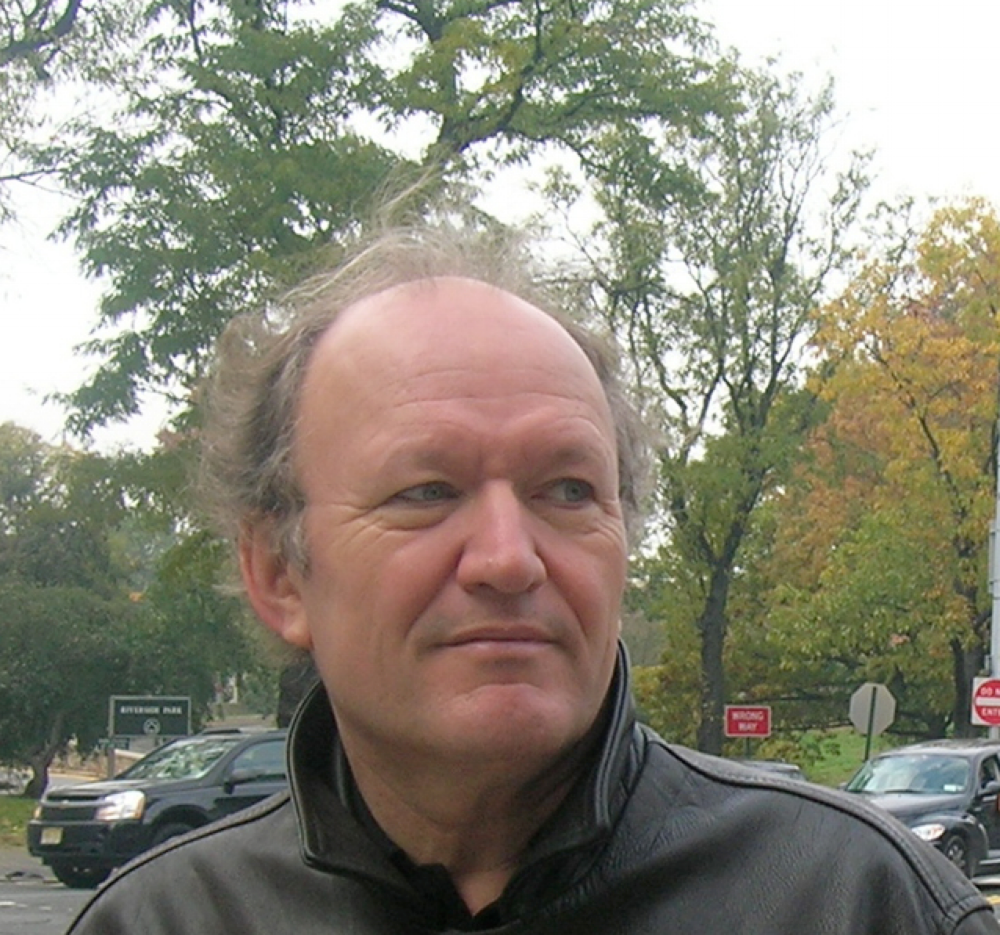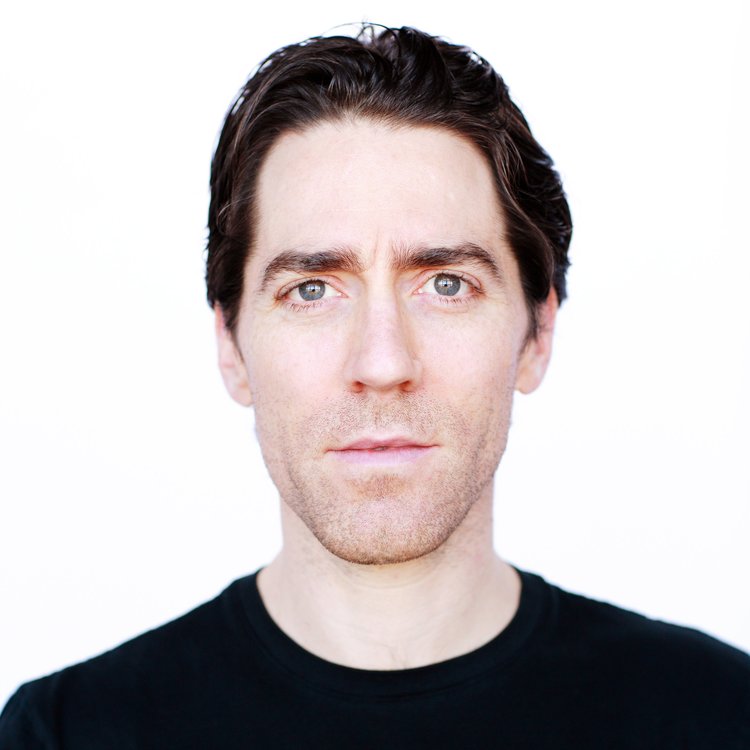Summer 2018 Composer Faculty:
Philippe Hurel | Erin Gee | John Aylward | Martin Brody
Dance Faculty: Colin Gee
Philippe Hurel
Philippe Hurel is widely regarded as one of the great French composers of his generation. His honors include the Pensionnaire à la Villa Médicis à Rome (1986-88), the Förderpreis der Siemens-Stiftung in Munich 1995, the Prix des Compositeurs from SACEM (2002), and the Prix de la Meilleure Création de l'Année from SACEM 2003. Mr. Hurel worked as a music researcher at IRCAM in 1985-86 and 1988-89. He taught composition at IRCAM from 1997-2001. He also served as composer-in-residence to both the Arsenal de Metz and the Philharmonie de Lorraine from 2000-02. With Pierre André Valade he founded the new music ensemble Court-circuit in 1990 and has since served as its artistic director. Since 2013 he teaches composition at the Conservatoire national superieur de musique et de danse de Lyon.
Mr. Hurel's music has been performed by numerous orchestras and ensembles and by conductors such as by Pierre Boulez, David Robertson, Ludovic Morlot, Tito Ceccherini, Jonathan Nott, Esa Pekka Salonen, Kent Nagano, Pierre-André Valade, François Xavier Roth, Christian Eggen, Lorraine Vaillancourt, Reinbert de Leeuw, Bernard Kontarsky and many others.
Editions Billaudot publishes his music written between 1981-96 and Éditions Lemoine publishes his music written since 1997.
Erin Gee
Erin Gee teaches composition at Brandeis University. She has been awarded the Charles Ives Fellowship from the American Academy of Arts and Letters, a Bogliasco Fellowship, a Guggenheim Fellowship, a Radcliffe Fellowship, the 2008 Rome Prize, the Charles Ives Fellowship from the American Academy of Arts and Letters, Zürich Opera House’s Teatro Minimo, and the Picasso-Mirò Medal, among others.
Gee's series Mouthpieces uses non-traditional vocal techniques, devoid of semantic language, to construct intricate and subtle patterns of a diverse array of vocal sounds. In the Mouthpieces, the voice is used as an instrument of sound production rather than as a vehicle of identity. Linguistic meaning is not the voice’s goal. The construction of the vocal text is often based on linguistic structure—vowel-consonant formation and the principle of the allophone—and is relatively quiet, with a high percentage of breath. The Mouthpieces began as solo vocal works, devoid of semantic text or language and notated with the International Phonetic Alphabet. In the Mouthpiece series, the voice is used as an instrument of sound production rather than as a vehicle of identity.
Gee's works are taught in the composition and musicology programs of many leading universities such as MIT, University of Pennsylvania, Smith College, and Mills College, and she has lectured at Harvard, UC Berkeley, Dartmouth and Wellesley. Her debut portrait CD, Mouthpieces was released in January 2014 on the col legno label in Vienna and received a warm and thoughtful review in Gramophone, the premier review magazine for classical music. The review stated, “Erin Gee clearly has a contribution to make,” and mentioned the “tangible virtuosity of Gee’s formidable vocal execution, as well as the comparable (if relatively more orthodox) finesse of the instrumental component.”
Martin Brody
Primarily a composer of concert and theatrical chamber music, Martin Brody has also written extensively for film and television. He has received various awards and commissions, among them the Academy-Institute Award from the American Academy of Arts and Letters, three fellowships from the National Endowment for the Arts, a Guggenheim Fellowship, and commissions from the Fromm Foundation at Harvard, the MacArthur Foundation's Regional Touring Program, the Artists Foundation, and the Massachusetts Arts and Humanities Council. In the fall of 2001, he was Fromm Composer-in-Residence at the American Academy in Rome. Brody is president of the Stefan Wolpe Society and has also served as a Director of the League of Composers-ISCM, the Composers Conference, and Boston Musica Viva. In 1987 he collaborated with the ethnomusicologist Ted Levin to initiate a US-USSR composers exchange sponsored by the International Research and Exchanges Board, the first such exchange to occur in 25 years. He has written extensively on contemporary music and serves on the editorial board of Perspectives of New Music. He is Catherine Mills Davis Professor of Music at Wellesley College.
John Aylward
John Aylward has been described by the Boston Globe as "A composer of wide intellectual curiosity", who summons "textures of efficient richness, delicate and deep all at once." His music is intertwined with both modern and ancient literary traditions, from Plato to Thomas Mann, and is also deeply effected by time spent in the deserts of Arizona and New Mexico. These streams of influence have led to a music that considers ancestral concepts of time, appropriations of indigenous cultures into surrealism, impressionism and post-modernism, and the connections between Ancient, native and modern mythologies. Aylward's work has been performed internationally by a range of ensembles and soloists. Both as a pianist and as a director of the Etchings Festival of Contemporary Music, Aylward has supported new music of all kinds through commissions and performances.
Awards and fellowships include those from the Guggenheim Foundation, the American Academy of Arts and Letters, the Radcliffe Institute at Harvard University, the Koussevitzky Commission from the Library of Congress, the Fromm Music Foundation, the Fulbright Foundation (Germany), the DAAD (residency in Berlin) the MacDowell Colony, Tanglewood, the Aspen Music School, the Atlantic Center for the Arts, the Virginia Center for the Creative Arts, the International Society for Contemporary Music, and many others.
John holds composition degrees (MFA, PhD) from Brandeis University and a degree in piano performance (BM) from the University of Arizona. Currently, John lives in Cambridge, Massachusetts, and teaches music composition at Clark University.
Colin Gee
Colin Gee is the Etchings Festival Movement and Dance Director. Trained as an actor at the Jacques Lecoq School and the Dell’Arte School of Physical Theater, he received a Rome Prize (2011, Design), was the founding Whitney Live Artist-in-Residence at the Whitney Museum of American Art, the 2009 Visiting Artist-in-Residence at the Cathedral Church of St John the Divine, and a clown for the Cirque du Soleil touring production “Dralion” (2001–2004).
Colin has frequently collaborated on musical works with the composer Erin Gee (his sister), providing the libretto for her opera, “SLEEP” (2009, Zürich Opera House), “Mouthpiece XIII, Mathilde of Loci, Part I” (2009, American Composer's Orchestra, Carnegie Hall), “Mouthpiece XX” (2014, Vienna Konzerthaus, with the Vienna Radio Symphony Orchestra), and “Mouthpiece VI+I” (2014, Chicago, with Fonema Consort). His recent dance works include “Lenore” (2016), “They Go Out in Joy” (2016), and “Chaplet of Roses” (2015), all created with dancer/choreographer Angie Smalis.
Colin's video works include “Portrait and Landscape” (2006–2012) at DTW and the Whitney Museum (ARTPORT and Whitney Live); “Nested” (2009), commissioned by San Francisco Museum of Modern Art; “History Plays” (2010–1014), presented by Whitney Live; “In the first place…” (2012), an EMPAC Dance Movies Commission; “I, who am the chorus” (2012), presented by FuturePerfect; and “I felt I’d been here before” (2010), commissioned and presented by Belfast Exposed Photographic Archive.
His performance work was included in the 2010 Whitney Biennial, and “Objective Suspense” (2008), an object-theater work, was commissioned by the Whitney Museum as part of the exhibition “Alexander Calder: the Paris Years.” The film/performance work “Across The Road” (2009) premiered at The Chocolate Factory, and “Dakota” (2005) premiered at PS122, and received the Dublin Fringe Festival Best Male Performer award.
He has conducted workshops at Columbia University, Tufts University, Wellesley College, London International School of Performing Arts, the University of Iowa, North Carolina School of the Arts, University of California San Diego, Televisa Studios in Mexico City, and University of Arts and Communication in Santiago de Chile, among others.





